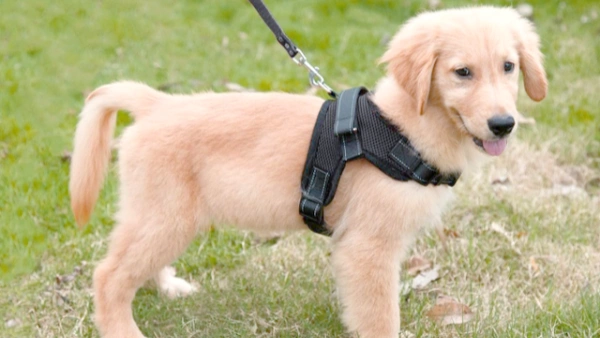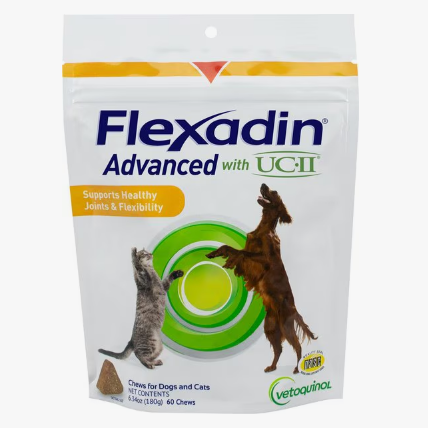2025’s Ways: How to Train a Dog Not to Bite Strangers
How to train a dog not to bite is a common challenge that many dog owners face. Whether it's a puppy teething and biting objects or an adult dog biting out of excitement or anxiety, effective training methods are essential for correcting this behavior. In this guide, I will share some practical tips and methods to help you solve the dog biting problem, making your dog more obedient and gentle.
Why Do Dogs Bite?
There are several reasons why dogs may bite, including the following:
Teething: Puppies often bite to relieve discomfort from teething.
Excitement or Emotions: Some dogs bite when they are excited or playing.
Fear or Defense: Dogs may bite when they feel scared or threatened.
Territorial Behavior: Dogs with strong territorial instincts may bite when strangers or other animals enter their space.
Identifying the cause of your dog's biting behavior is the first step to developing an effective training plan.
Scientific Training Methods for Dogs
Here are some effective training methods for dogs to prevent biting:
1. Provide Chew Toys for Puppies
When puppies bite due to teething, provide them with chew toys, such as rubber bones or chew ropes. These toys can help relieve the discomfort and protect your furniture and family members. I once had a puppy who chewed everything, but after giving it a natural rubber toy, it focused more on the toy than the furniture.

2. Correct Behavior Immediately
When your dog starts biting, use a firm command like "stop" or "no." Be firm but calm—avoid shouting, as it can escalate your dog's anxiety. If the dog stops biting, reward them with a treat to reinforce the correct behavior.
3. Use Positive Reinforcement
Positive reinforcement is an effective way to correct biting behavior. When your dog obeys commands and stops biting, reward them with a high-value treat, praise, or affection. For example, freeze-dried chicken pieces can be very attractive to dogs and will improve their compliance during training.
4. Increase Socialization
Lack of social experience can lead to biting. Regularly exposing your dog to strangers and other dogs helps reduce their fear and defensive reactions. For instance, my dog used to be very hostile toward the neighbor's dog, but after attending a few park gatherings, it became more relaxed around other dogs.
5. Consider Professional Training Tools
There are many training tools available to help correct dog biting, such as anti-bite sprays and protective bite muzzles. Anti-bite sprays can be applied to furniture or areas that the dog tends to bite, reducing destructive behavior. Protective muzzles are useful when taking your dog out in public or to unfamiliar environments to prevent it from biting others.
6. Be Patient and Consistent
Correcting biting habits takes time. It’s important to observe your dog’s behavior and intervene immediately when they show signs of biting. Avoid using physical punishment, as this can lead to fear or aggression, which could worsen the problem.

Everything Our Vets Recommend
How to Prevent Dogs from Biting
Prevention is key to avoiding dog biting issues:
Regular Behavioral Training: Teach basic commands like "sit" and "no" to establish clear boundaries.
Comfortable Environment: Dogs are more likely to bite when stressed. Ensure your dog has a comfortable, quiet space to relax.
Quality Dog Food and Chew Toys: High-quality food can improve overall health, and chew toys fulfill their natural biting needs.
Frequently Asked Questions
Q1: Why do dogs bite strangers?
A1: Fear, territorial behavior, or lack of socialization are common reasons.
Q2: How can I prevent my dog from biting visitors?
A2: Socialize early, use positive reinforcement, and supervise all interactions.
Q3: Should I use a muzzle to stop my dog from biting?
A3: A muzzle can be a temporary safety tool, but training is essential for long-term behavior change.
Dog biting is an issue that can be solved with the right training methods. By identifying the cause, applying the correct techniques, and being consistent, most dogs will become more well-behaved. To make training even more effective, consider purchasing specialized training tools like chew toys or high-value treats. These will not only improve your training results but also help your dog better follow your commands. If you're dealing with a dog biting issue, try these methods, and you may soon see positive changes.
Teach your dog to stop biting is something all dog owners can achieve with time, patience, and the right approach. Start with small steps, and watch your dog become a well-mannered companion.
You May Like:
- 3 Mins Daily: How to Train Your Dog to Sit and Stay
- Crate Training Mistakes: How to Crate Train Your Dog Kindly
- 2025’s Fast: How to Potty Train the Dog Stress-Free
- 2025’s Proven: How to Train Your Dog to Not Bark
User Comments
Does flea treatment kill ear mites too?
Can dogs take human probiotics?
Can dogs have people probiotics safely?
Related Articles
View all
How to Leash Train a Dog: A Step-by-Step Guide to Confident Walks

How to Teach Your Dog to Speak – Easy Steps and Tips

Crate Training Mistakes: How to Crate Train Your Dog Kindly

Top 10 Easiest Dog Breeds to Train – Perfect for First-Time Owners

How to Leash Train a Dog: A Step-by-Step Guide to Confident Walks

How to Teach Your Dog to Speak – Easy Steps and Tips

Crate Training Mistakes: How to Crate Train Your Dog Kindly

Top 10 Easiest Dog Breeds to Train – Perfect for First-Time Owners

How to Train Your Dog to Sit and Stay: Step-by-Step Guide

2025’s Ways: How to Train a Dog Not to Bite Strangers

2025’s Fast: How to Potty Train the Dog Stress-Free














Leave a Reply